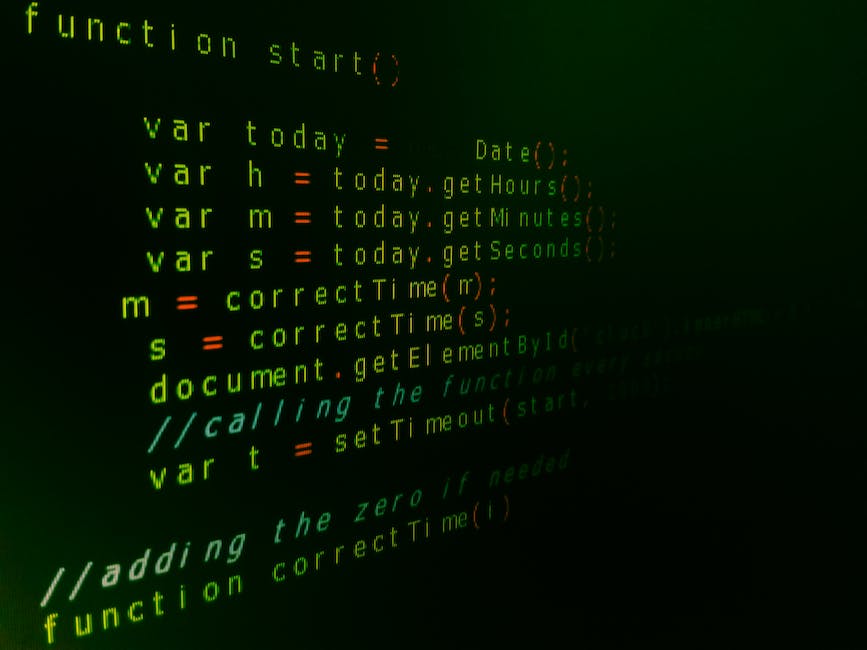Data Scientist Positions: In an era where information is the most powerful tool, understanding and harnessing data has become a strategic necessity, leading to the rise of a critical and sought-after profession known as data scientist. This profession plays a crucial role in unlocking valuable insights from vast amounts of data, using a blend of complex algorithms, predictive modelling, and various data analysis techniques. Filling this role requires a unique set of technical expertise paired with certain soft skills that make the tasks manageable and effective. It offers myriad opportunities for career growth, allowing individuals to specialize in diverse industry sectors. Further, the prerequisites, in terms of education and experience, also shape the ability to break into this promising field and advance within it.
Understanding the role of a Data Scientist
Exploring the World of Data Scientists
Data scientists are a new breed of analysts who have the technical ability to solve complex problems – their main task is to wrangle vast amounts of disorganized data into coherent and understandable formats. It’s a role that combines data collection, processing, and analysis, and requires extreme attention to detail. In other words, they play a significant role in helping businesses make informed decisions using data.
One of the key responsibilities of a data scientist is preparing the data, which involves a process called data cleaning. This involves making it accurate, complete, and timely while filtering out any irrelevant part. Therefore, strong problem-solving skills are essential in identifying and rectifying any errors quickly due to the high stakes that even a small mistake can lead to misleading results.
Moreover, data scientists craft intricate algorithms and mathematical models to distinguish patterns and trends in the raw data. By testing and adjusting these models for optimal performance, they strive for the most precise predictions. They also use predictive modeling to devise, test, and employ models capable of predicting future trends. This function of predictive modeling helps businesses to make proactive choices, such as projecting sales trends which aids better resource management.

Skills required for a Data Scientist Position
Essential Skills for Aspiring Data Scientists
A data scientist’s role is multifaceted, demanding a variety of specialist technical skills. Being proficient in programming languages like Python, R, or Java tops the list, as these are fundamental for data extraction, cleaning, and analysis. Alongside such programming proficiency, database interaction skills, especially SQL, are also crucial. Experience in Big Data processing platforms such as Hadoop and Spark is a highly desirable skill as businesses increasingly work with large datasets. Additionally, an understanding of statistical analysis software like SAS, STATA, or SPSS can provide an edge in the competitive field of data science.
Key Skills Required for Data Scientists
In addition to technical knowledge, data scientists are expected to be well-versed in several soft skills. These include the ability to think critically and solve complex problems, as data scientists are tasked with sifting through vast amounts of data to extract valuable insights. These insights need to be conveyed clearly to both technical specialists and non-technical personnel, which makes outstanding communication skills vital. Frequently, data scientists are part of teams, so it’s important for them to have good collaboration and interpersonal skills. Furthermore, given the frequent discussions surrounding data-related ethical questions, a comprehension of data privacy principles and regulations is becoming increasingly important in this profession.

Career Path and Opportunities in Data Science
Navigating a Career in Data Science
The field of data science offers a multitude of opportunities for career growth and specialization. Newcomers in this field usually start in positions such as junior data scientist or data analyst. With a few years of experience and the ability to master practical skills, these professionals can progress to higher roles like senior data scientist, principal data scientist, and in some cases, even chief data officer. Additionally, there’s also the opportunity to specialize in roles such as data engineers or machine learning engineers. These positions focus more on the infrastructure side of data science and the creation and fine-tuning of algorithms, respectively.
Specialization and Opportunities in Different Sectors
Another significant aspect of the data science career path is the chance to specialize in various industry sectors. From finance and healthcare to entertainment and e-commerce, nearly every industry now recognizes the importance of leveraging data for insightful decision-making and predictive analysis. Hence, a data scientist may choose to become a financial data scientist, healthcare data analyst, or even a machine learning engineer in the tech industry. This cross-industry applicability of data science means that there are ample opportunities for these professionals to apply their skills in evolving and exciting contexts.
Thriving Demand for Data Science Professionals
As data continues to drive decision-making in modern businesses, the demand for skilled data scientists is skyrocketing. Companies are increasingly seeking experts to decipher complex datasets, ensuring they remain essential in a world dominated by Big Data. With the advent of artificial intelligence and machine learning, this necessity for data science professionals is further amplified as they are crucial to leading the charge into technological advancement. It’s a thrilling era for data science jobs with the future promising an expanding market as organizations understand the effectiveness of data-driven strategies to gain the upper hand in competition.

Education and Experience Needed for Data Scientist Positions
Academic Qualifications Necessary for Data Science Roles
Commencing a journey into data science requires a strong foundation in relevant academic fields. The minimum requirement for this coveted position is typically a bachelor’s degree in data science, mathematics, statistics, computer science, or a related field. However, many organizations show a preference for hiring candidates with master’s degrees or even Ph.Ds in these disciplines. The study within these programs includes crucial areas like programming, machine learning, data visualization, and prediction models, providing aspiring data scientists the necessary tools for their highly analytical and demanding role.
Professional Qualifications and Experience
In addition to educational credentials, employers often look for a variety of skills and experience when hiring data scientists. Professional certifications, such as Certified Analytics Professional (CAP) or SAS Certified Big Data Professional, can be beneficial in demonstrating these skills. Experience with specific programming languages, such as Python, R, or SQL, is frequently desirable. Additionally, a strong background in machine learning, artificial intelligence, and statistical analysis is generally looked for in potential candidates. Practical experience dealing with real-world data problems, ideally backed by a portfolio showcasing data science projects, can further enhance job prospects. Work experience or internships in the field are highly valued, and previous roles in statistics, technology, or data analysis can provide an ideal stepping stone into a data scientist position.

Becoming a data scientist isn’t an overnight process. It takes dedication, continuous learning, and practice. It’s all about building and layering your skills, gaining the right education, broadening your experience, and aligning yourself with a changing landscape. The road may seem long and challenging, but the rewards are immense, both in terms of intellectual satisfaction and career progression. A journey into the realm of data science provides unparalleled opportunities in industries across the globe, making it a worthwhile pursuit for those who love dissecting data, extracting insights, and using this information to shape businesses or even society at large. Get started on your path today, for the world of data science eagerly awaits you.

